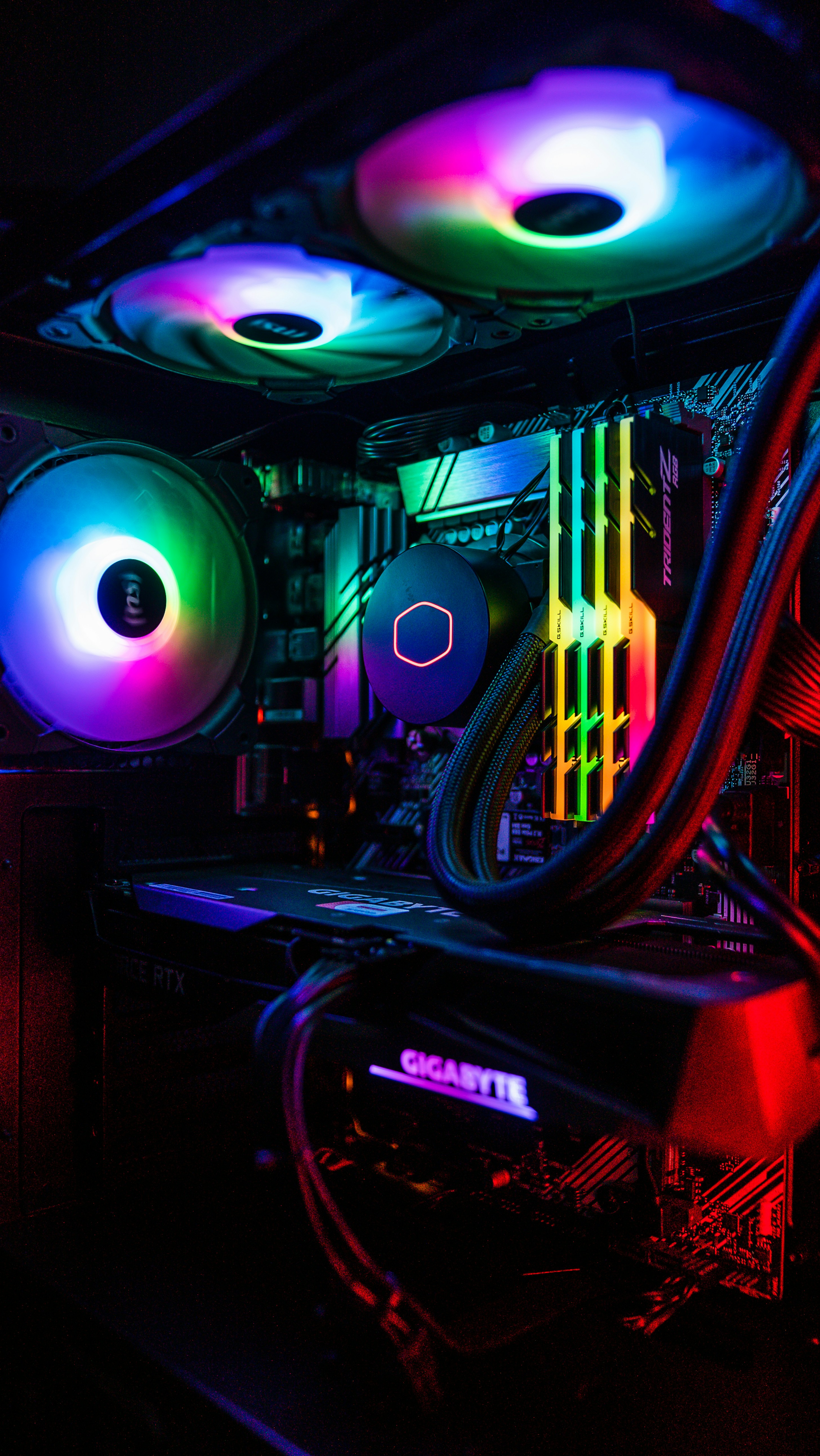Building a Budget Gaming PC with Second-Hand Components
Jun 18, 2024

Who says you need deep pockets to join the PC gaming elite? With a little know-how and some savvy shopping, you can build a respectable gaming rig using second-hand parts. Let's dive into the world of budget builds and pre-loved components!
Why Go Second-Hand?
Before we start our virtual shopping spree, let's talk about why second-hand components can be a goldmine for budget builders:
More bang for your buck: Your dollar stretches further in the used market.
Access to higher-tier components: Last-gen high-end parts often outperform new budget options.
Environmentally friendly: Extending the life of computer parts reduces e-waste.
Community connection: Buying used often means engaging with fellow enthusiasts.
Now, let's build our PC!
The Heart of the Beast: CPU and Motherboard
For gaming, the CPU is crucial, but you don't need the latest and greatest. Look for:
Intel Core i5 (9th gen or newer)
AMD Ryzen 5 (3000 series or newer)
These older chips still pack a punch and can be found at bargain prices. Pair them with a compatible motherboard – just ensure it has the features you need (like sufficient USB ports and the right expansion slots).
Pro tip: When buying a used CPU, ask if it comes with the original cooler. If not, factor in the cost of an aftermarket cooler.
Pixel Pusher Supreme: The GPU
The graphics card is the cornerstone of any gaming PC, and it's where you can really save big when going the second-hand route. Let's break it down:
Mining Madness and Your Gain
The cryptocurrency boom and bust cycles have flooded the market with used GPUs. Many miners are offloading their hardware, creating opportunities for savvy gamers.
Myth-busting: Contrary to popular belief, many mining GPUs are in excellent condition. Miners often undervolt their cards to save on electricity, potentially extending the GPU's lifespan.
However, be wary of cards that have been running 24/7 in poor conditions. Ask about the card's mining history and cooling setup.
Target GPUs for 1080p Gaming
For solid 1080p performance, consider these options:
NVIDIA:
GTX 1660 Super: Great bang for your buck
RTX 2060: Entry-level ray tracing and DLSS support
GTX 1070: Still a capable card for modern games
AMD:
RX 5600 XT: Excellent 1080p performer
RX 5700: Can even handle some 1440p gaming
RX 580 8GB: Older but still viable for many games
Stepping Up to 1440p
If you're aiming for 1440p gaming, look for:
NVIDIA RTX 2070 Super or 2080
AMD RX 5700 XT or Vega 64
These cards will require a bigger budget but offer significant performance improvements.
What to Look For
When evaluating a used GPU:
Physical condition: Check for dust buildup, fan damage, or bent PCBs
Original packaging: Cards with boxes often indicate better care
Remaining warranty: Some warranties are transferable
Benchmark scores: Ask the seller for 3DMark or Unigine Heaven results
Testing Your GPU
Once you've got your hands on a GPU:
Stress test with FurMark or MSI Kombustor
Check temperatures under load
Listen for any unusual noises (grinding fans, coil whine)
Run actual games to ensure real-world performance meets expectations
Future-Proofing on a Budget
Consider technologies that might extend your GPU's useful life:
NVIDIA DLSS: Can boost performance in supported games
AMD FSR: Open-source alternative to DLSS
Ray tracing: While performance-heavy, it's becoming more common
The GPU Market: Always Changing
Keep in mind that the GPU market is volatile. Prices and availability can change rapidly due to:
New releases pushing down prices of older models
Cryptocurrency market fluctuations
Global chip shortages and supply chain issues
Making the Purchase
When you're ready to buy:
Communicate clearly with the seller about the card's history and condition
Use secure payment methods with buyer protection
If possible, test the card before finalizing the purchase
Keep all communication and transaction details for your records
Remember, a great deal on a powerful GPU can be the difference between a good budget build and a great one. Take your time, do your research, and don't be afraid to negotiate. With patience and diligence, you can snag a GPU that'll keep you gaming happily for years to come.
Memory Lane: RAM
RAM is pretty reliable second-hand. Look for:
16GB (2x8GB) DDR4
Speeds of 3000MHz or higher
Matching pairs are ideal for dual-channel performance.
Storage Solutions
This is one area where buying new can be beneficial, especially for your boot drive. However, if you're pinching pennies:
Get a small (250GB-500GB) SSD for your OS and favorite games
Add a larger second-hand HDD for bulk storage
Power Up: The PSU
Tread carefully here. A faulty PSU can take out other components. If you go second-hand:
Stick to reputable brands (Corsair, EVGA, Seasonic)
Ensure it's 80+ certified (Bronze or better)
Look for modular designs for easier cable management
Consider buying new if your budget allows – peace of mind is worth it!
Bringing It All Together: The Case
Used cases can be a steal, often coming with fans included. Look for:
✓ Good airflow design
✓ Sufficient space for your components
✓ Front panel USB 3.0 ports
Clean it thoroughly before building – you don't want any surprises!
The Hunt: Where to Find Parts
Online marketplaces (eBay, Facebook Marketplace)
Tech forums and Reddit (r/hardwareswap)
Local computer shops
ByteBuy, of course! 😉
Building and Testing
Once you've gathered your components:
Assemble your PC carefully
Update all drivers and BIOS
Run stress tests to ensure stability
Benchmark to confirm performance
Remember, patience is key when hunting for deals. Don't rush into purchases, and always verify the condition and compatibility of parts before buying.
The Payoff
Congratulations! You've now got a capable gaming PC at a fraction of the cost of buying new. Sure, it might not run Cyberpunk 2077 at 4K with ray tracing, but it'll handle most games at 1080p with respectable framerates.
Plus, you've gained valuable experience in PC building and part selection. As you game, start saving for your next upgrade – that's the beauty of PCs, they can grow with you!
Have you built a PC with second-hand parts? Share your experiences and tips in the comments below. And remember, whether you're buying or selling, ByteBuy is here to make your hardware trading journey smooth and secure. Game on!
